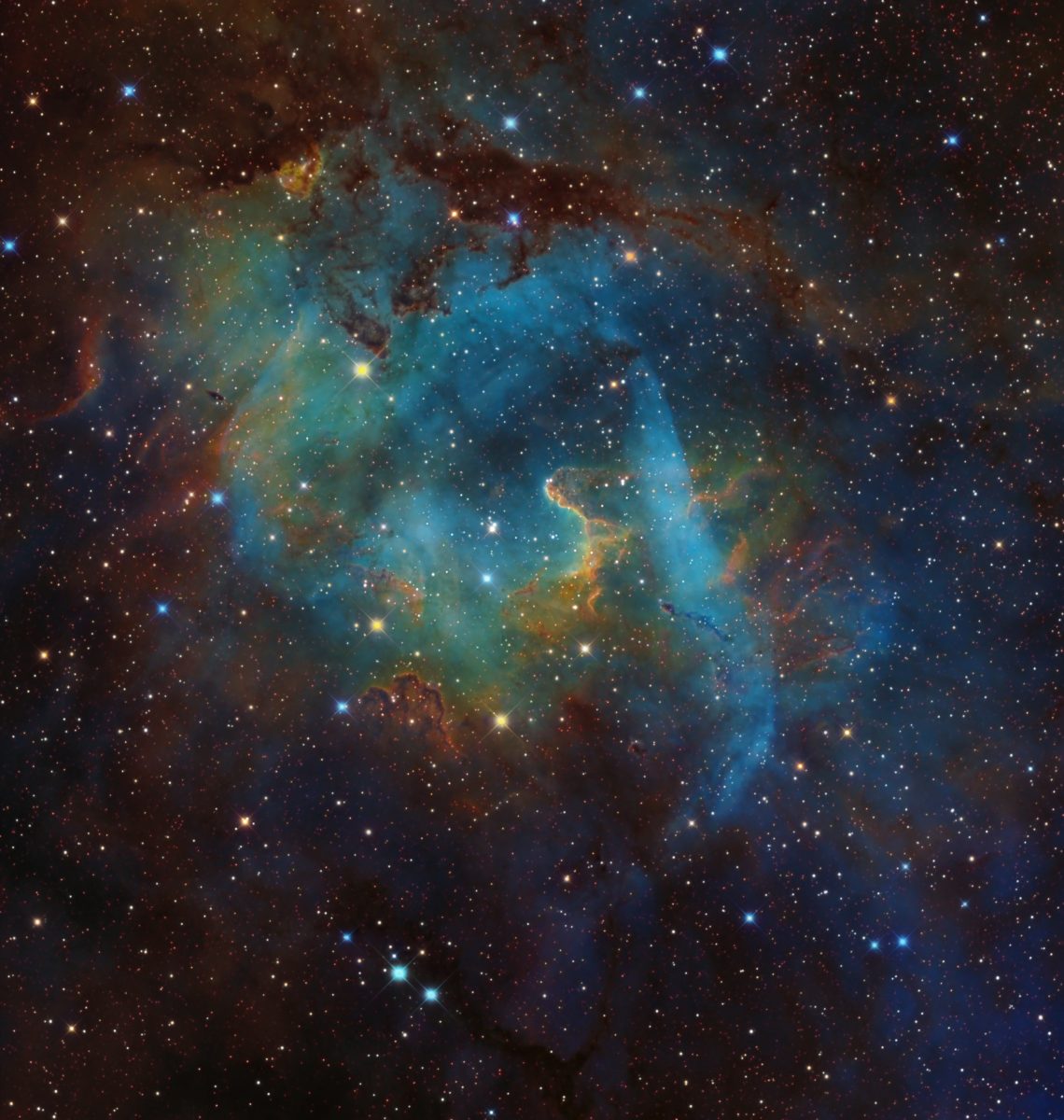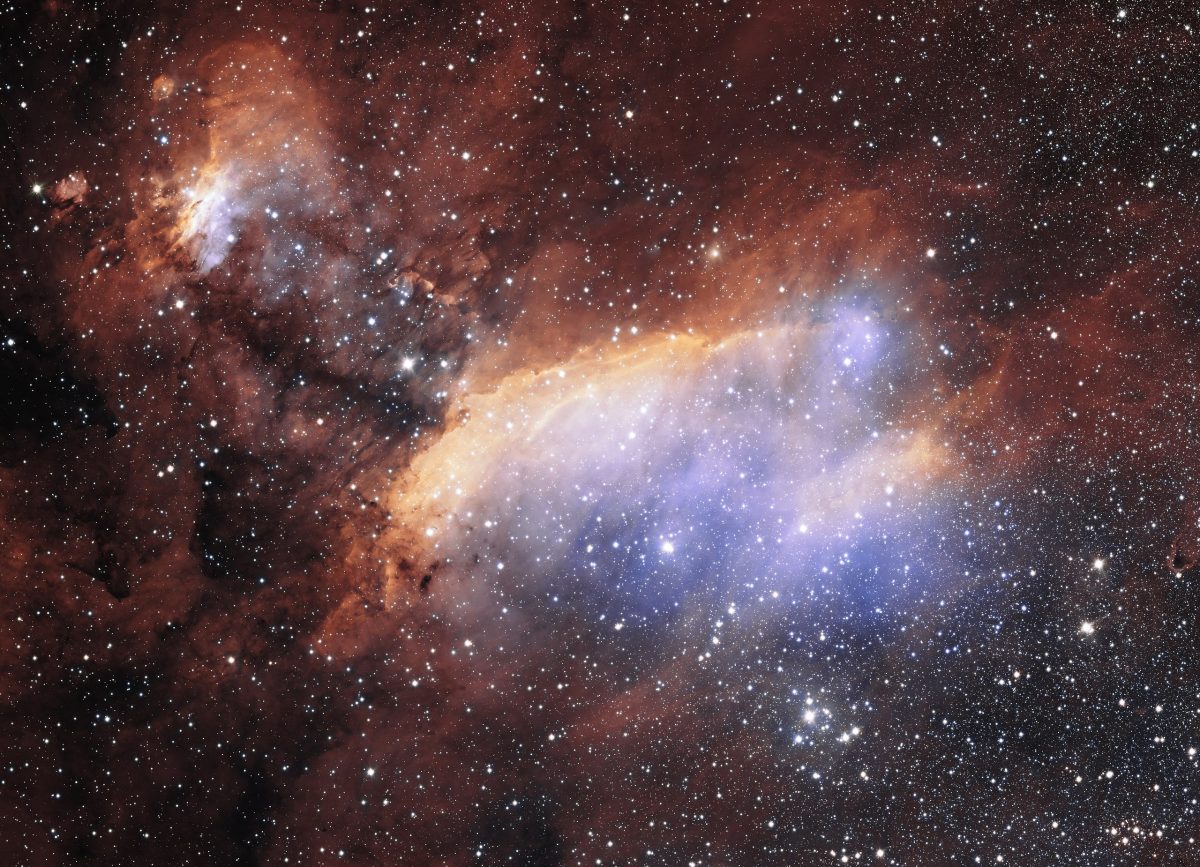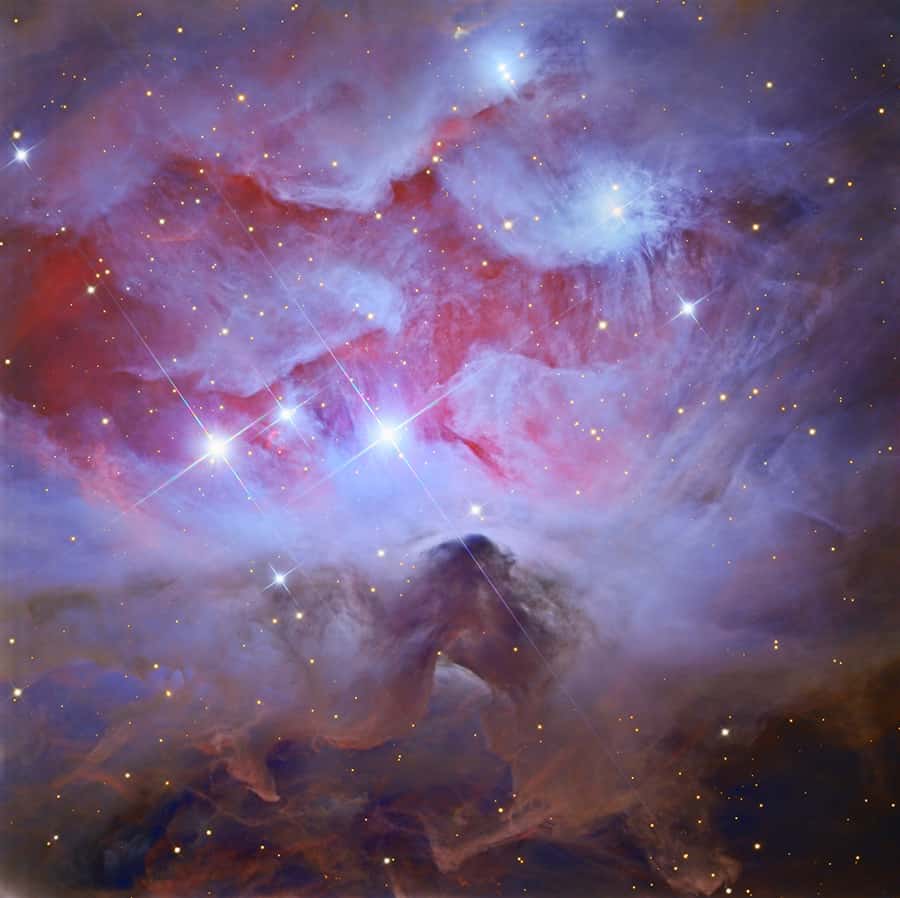Blog
Not a Falcon 9 rocket launch after sunset, the Cat’s Eye Nebula (NGC 6543) is one of the best known planetary nebulae in the sky. Its haunting symmetries are seen in the very central region of this composited picture, processed to reveal an enormous but extremely faint halo of gaseous material, over three light-years across. Made with data from ground- and space-based telescopes it shows the extended emission which surrounds the brighter, familiar planetary nebula. Planetary nebulae have long been appreciated as a final phase in the life of a sun-like star. But only more recently have some planetaries been found to have halos like this one, likely formed of material shrugged off during earlier active episodes in the star’s evolution. While the planetary nebula phase is thought to last for around 10,000 years, astronomers estimate the outer filamentary portions of this halo to be 50,000 to 90,000 years old.
more...Thomas Earl Petty (October 20, 1950 – October 2, 2017 Gainesville, FL) was an American singer-songwriter, multi-instrumentalist, record producer, and actor. He was the lead singer of Tom Petty and the Heartbreakers, formed in 1976. He previously led the band Mudcrutch. He was also a co-founder of the late 1980s supergroup the Traveling Wilburys.
Petty recorded a number of hit singles with the Heartbreakers and as a solo artist. In his career, he sold more than 80 million records worldwide, making him one of the best-selling music artists of all time. He and the Heartbreakers were inducted into the Rock and Roll Hall of Fame in 2002. Petty died on October 2, 2017, one week after the completion of the Heartbreakers’ 40th anniversary tour.
more...Eddie Harris (October 20, 1934 – November 5, 1996 Chicago) was an American jazz musician, best known for playing tenor saxophone and for introducing the electrically amplified saxophone. He was also fluent on the electric piano and organ. His best-known compositions are “Freedom Jazz Dance”, recorded and popularized by Miles Davis in 1966, and “Listen Here.”
Harris was born and grew up in Chicago. His father was originally from Cuba, and his mother from New Orleans. Like other successful Chicago musicians, including Nat King Cole, Dinah Washington, Clifford Jordan, Johnny Griffin, Gene Ammons, Julian Priester, and Bo Diddley (among others), young Eddie Harris studied music under Walter Dyett at DuSable High School. He later studied music at Roosevelt University, by which time he was proficient on piano, vibraphone, and tenor saxophone. While in college, he performed professionally with Gene Ammons.
After college, Harris was drafted into the United States Army and while serving in Europe, he was accepted into the 7th Army Band, which also included Don Ellis, Leo Wright, and Cedar Walton.
https://www.youtube.com/watch?v=kf7FB4ilX5w
more...William “Willie” Jones, Jr. (October 20, 1929 – April 1991) was a jazz drummer. He is known for playing and recording with Thelonious Monk, Elmo Hope, and Charles Mingus.
Jones was born in New York on October 20, 1929. He mainly taught himself to play the drums, and played left handed.He played and recorded with pianist Thelonious Monk in 1953, including on the album Thelonious Monk and Sonny Rollins. This recording, on November 13, was Jones’ first. He also appeared with Monk on the television program The Tonight Show, on June 10, 1955.[2]:187 Jones was sideman for another pianist’s recording in 1955 – Elmo Hope‘s Meditations;[3]:723 and for Randy Weston‘s The Modern Art of Jazz by Randy Weston in the following year. In 1956 Jones had a two-week engagement with Monk in Philadelphia. Jones also played with Kenny Dorham, J. J. Johnson, Charlie Parker, and Cecil Payne in the mid-1950s.
In 1955–56 Jones was part of Charles Mingus‘ Jazz Workshop, and was the drummer in the bassist’s band that recorded Pithecanthropus Erectus, which helped develop a freer form of group improvisation. Jones was tenor saxophonist Lester Young‘s drummer from late 1956 to early 1959. In 1961, Jones played on Sun Ra‘s The Futuristic Sounds of Sun Ra. After this, nothing is known about Jones, and his date of death was taken from social security records. These associations – with the traditional Young and the avant-garde Sun Ra – illustrated Jones’ versatility.
more...Ferdinand Joseph LaMothe (October 20, 1890 – July 10, 1941 NOLA), known professionally as Jelly Roll Morton, was an American ragtime and early jazz pianist, bandleader and composer who started his career in New Orleans, Louisiana.
Widely recognized as a pivotal figure in early jazz, Morton was jazz’s first arranger, proving that a genre rooted in improvisation could retain its essential spirit and characteristics when notated. His composition “Jelly Roll Blues“, published in 1915, was the first published jazz composition. Morton also wrote the standards “King Porter Stomp“, “Wolverine Blues“, “Black Bottom Stomp“, and “I Thought I Heard Buddy Bolden Say”, the last a tribute to New Orleans musicians from the turn of the 20th century.
Morton’s claim to have invented jazz in 1902 aroused resentment. The jazz historian, musician, and composer Gunther Schuller says of Morton’s “hyperbolic assertions” that there is “no proof to the contrary” and that Morton’s “considerable accomplishments in themselves provide reasonable substantiation”. Alan Lomax, who recorded extensive biographical interviews of Morton at the Library of Congress in 1938, did not agree that Morton was an egoist:
In being called a supreme egotist, Jelly Roll was often a victim of loose and lurid reporting. If we read the words that he himself wrote, we learn that he almost had an inferiority complex and said that he created his own style of jazz piano because “All my fellow musicians were much faster in manipulations, I thought than I, and I did not feel as though I was in their class.” So he used a slower tempo to permit flexibility through the use of more notes, a pinch of Spanish to give a number of right seasoning, the avoidance of playing triple forte continuously, and many other points”. –Quoted in John Szwed, Dr Jazz
https://www.youtube.com/watch?v=h8_2ISGOIjU
more...Mongolia
more...Rhythm Roots Residency Performances Friday October 19th 2018 11:45am
Featuring PRI Partnership Resources Inc St Louis Park and Minneapolis sites Percussion Ensembles
“Chicka Boom Chicka Boom” and “Just Do It”
Part of the Expressing Me-A Showcase of Creativity from Makers of All Abilities at MIA Minneapolis Institute of Art in the Reception Hall of the Target Wing on the 3d floor. Event is 11am-1pm
more...Sharpless 132, LBN 473
Sharpless 132 is a very faint emission nebula often overlooked by astrophotographers. It’s on the border of the constellations of Cepheus and Lacerta. It’s estimated to be about 10,000 light years away. The star field is very rich, so the nebula is almost lost amidst all the stars.
more...Masabumi Kikuchi (菊地 雅章 Kikuchi Masabumi, 19 October 1939 – 6 July 2015) was a Japanese jazz pianist and composer known for his eclectic music that ranges from vanguard classical to fusion and digital music. He worked with a large number of diverse musicians, including Lionel Hampton, Sonny Rollins, Woody Herman, Mal Waldron, Joe Henderson, McCoy Tyner, Gil Evans, Elvin Jones, Miles Davis, Paul Motian, Billy Harper and Hannibal Peterson.
Masabumi Kikuchi was born in Tokyo in 1939, and lived his early life in World War II and post-war Japan. He studied music at the Tokyo Art College High School. After graduating, he joined Lionel Hampton‘s Japanese touring band. He died from a subdural hematoma on 6 July 2015 at a hospital in Manhasset, New York. At the time of his death, he lived in Manhattan, New York City.
more...Willie Lee Perryman (October 19, 1911 – July 25, 1985), usually known professionally as Piano Red and later in life as Dr. Feelgood, was an American blues musician, the first to hit the pop music charts. He was a self-taught pianist who played in the barrelhouse blues style (a loud percussive type of blues piano suitable for noisy bars or taverns). His performing and recording careers emerged during the period of transition from completely segregated “race music” to rhythm and blues, which was marketed to both white and black audiences. Some music historians credit Perryman’s 1950 recording “Rocking With Red” for the popularization of the term rock and roll in Atlanta. His simple, hard-pounding left hand and his percussive right hand, coupled with his cheerful shout, brought him considerable success over three decades.
Perryman was born on a farm near Hampton, Georgia, where his parents, Ada and Henry Perryman, were sharecroppers. He was part of a large family, though sources differ on exactly how many brothers and sisters he had. Perryman was an albino African American, as was his older brother Rufus, who also had a blues piano career as “Speckled Red”
more...World Music on Flamenco Fridays with Cameron y Paco de Lucia performing Tangos.
The flamenco tango is distinct from the flamenco rumba primarily through the guitar playing. In Rumba the guitar flows more freely, whereas in Tangos the accents on beats 2, 3 & 4 are marked clearly with heavy strumming.
more...
Prawn Nebula, IC 4628, is an emission nebula located in the Sagittarius Arm of the Milky Way, around 6000 light-years from Earth in the constellation Scorpius. It forms part of the tail of the “False Comet” anchored by the bright open cluster NGC 6231.
more...Esperanza Emily Spalding (born 1984) is an American jazz bassist and singer. Spalding was raised in Portland, Oregon, and was a musical prodigy, playing violin in the Chamber Music Society of Oregon at five years old. She was later both self-taught and -trained on a number of instruments, including guitar and bass. Her proficiency earned her scholarships to Portland State University and the Berklee College of Music. In 2017 she was appointed Professor of the Practice of Music at Harvard University.[3]
She has won four Grammy Awards, including the Grammy Award for Best New Artist at the 53rd Grammy Awards, making her the first jazz artist to win the award.
more...Wynton Learson Marsalis (born October 18, 1961) is an American trumpeter, composer, teacher, and artistic director of Jazz at Lincoln Center. He has promoted classical and jazz music often to young audiences. Marsalis has been awarded nine Grammy Awards and his Blood on the Fields was the first jazz composition to win the Pulitzer Prize for Music. He is the son of jazz musician Ellis Marsalis Jr. (pianist), grandson of Ellis Marsalis Sr., and brother of Branford (saxophonist), Delfeayo (trombonist), and Jason (drummer). Marsalis is the only musician to win a Grammy Award in jazz and classical during the same year.
Marsalis was born in New Orleans, Louisiana, though he grew up in Kenner.
n 1979 he moved to New York City to attend Juilliard. He intended to pursue a career in classical music. In 1980 he toured Europe as a member of the Art Blakey big band, becoming a member of The Jazz Messengers and remaining with Blakey until 1982. He changed his mind about his career and turned to jazz. He has said that years of playing Blakey influenced his decision. He recorded for the first time with Blakey. One year later he went on tour with Herbie Hancock. After signing a contract with Columbia, he recorded his first solo album. In 1982 he established a quartet with his brother Branford, Kenny Kirkland, Charnett Moffett, and Jeff “Tain” Watts. When Branford and Kenny Kirkland left three years later to record and tour with Sting, Marsalis formed another quartet, this time with Marcus Roberts on piano, Robert Hurst on double bass, and Watts on drums. After a while the band expanded to include Wes Anderson, Wycliffe Gordon, Eric Reed, Herlin Riley, Reginald Veal, and Todd Williams.
more...Charles Edward Anderson Berry (October 18, 1926 – March 18, 2017 St Louis, MO) was an American singer, songwriter, and one of the pioneers of rock and rollmusic. With songs such as “Maybellene” (1955), “Roll Over Beethoven” (1956), “Rock and Roll Music” (1957) and “Johnny B. Goode” (1958), Berry refined and developed rhythm and blues into the major elements that made rock and roll distinctive. Writing lyrics that focused on teen life and consumerism, and developing a music style that included guitar solos and showmanship, Berry was a major influence on subsequent rock music.
Born into a middle-class African-American family in St. Louis, Missouri, Berry had an interest in music from an early age and gave his first public performance at Sumner High School. While still a high school student he was convicted of armed robbery and was sent to a reformatory, where he was held from 1944 to 1947. After his release, Berry settled into married life and worked at an automobile assembly plant. By early 1953, influenced by the guitar riffs and showmanship techniques of the blues musician T-Bone Walker, Berry began performing with the Johnnie Johnson Trio. His break came when he traveled to Chicago in May 1955 and met Muddy Waters, who suggested he contact Leonard Chess, of Chess Records. With Chess, he recorded “Maybellene”—Berry’s adaptation of the country song “Ida Red“—which sold over a million copies, reaching number one on Billboard magazine’s rhythm and blues chart. By the end of the 1950s, Berry was an established star, with several hit records and film appearances and a lucrative touring career. He had also established his own St. Louis nightclub, Berry’s Club Bandstand. However, he was sentenced to three years in prison in January 1962 for offenses under the Mann Act—he had transported a 14-year-old girl across state lines After his release in 1963, Berry had several more hits, including “No Particular Place to Go“, “You Never Can Tell“, and “Nadine“. But these did not achieve the same success, or lasting impact, of his 1950s songs, and by the 1970s he was more in demand as a nostalgic performer, playing his past hits with local backup bands of variable quality. However, in 1972 he reached a new level of achievement when a rendition of “My Ding-a-Ling” became his only record to top the charts. His insistence on being paid in cash led in 1979 to a four-month jail sentence and community service, for tax evasion.
https://www.youtube.com/watch?v=RoDPPgWbfXY
more...Israeli and Arabic group
more...https://www.youtube.com/watch?v=45iR93evP_Y
more...Sh2-279 (alternatively designated S279 or Sharpless 279) is an HII region and bright nebulae that includes a reflection nebula located in the constellation Orion. It is the northernmost part of the asterism known as Orion’s Sword, lying 0.6° north of the Orion Nebula. The reflection nebula embedded in Sh2-279 is popularly known as the Running Man Nebula.
Sh2-279 comprises three NGC nebulae, NGC 1973, NGC 1975, and NGC 1977 that are divided by darker nebulous regions. It also includes the open cluster NGC 1981. The brightest nebulosity, later listed as NGC 1977, was discovered by William Herschel in 1786. He catalogued it as “H V 30” and described “!! 42 Orionis and neb[ula]”. The two smaller reflection nebulae were first noted by French astronomer Heinrich Louis d’Arrest, NGC 1973 in 1862 and NGC 1975 in 1864. All three were included in the New General Catalogue in 1888. The designation NGC 1977 is used in various sources for the reflection area around 42 Orionis (the south-east portion of the reflection nebula), for the entire reflection nebula (including NGC 1973 and NGC 1975), or for the whole nebula complex.
1,500 ly
more...More Posts
- Bill Withers Day
- Fred Wesley Day
- World Music with Stony Point
- Daily Roots with the Revolutionaries
- The Cosmos with UGC 5340
- Dr Lonnie Smith Day
- Johnny Coles Day
- World Music with Nadya Giga and Their 101 Candles Orchestra
- Daily Roots with Cornell Campbell
- The Cosmos with the Antares
- Charlie Watts Day
- Ahmed Jamal Day
- World Music with Mamady Keita
- Daily Roots with Leroy Smart
- The Cosmos with IC 5332
- Leon “Ndugu” Chancler Day
- James Cotton Day
- Willie Dixon Day
- World Music with Music Maya Aj
- Daily Roots with Horace Andy
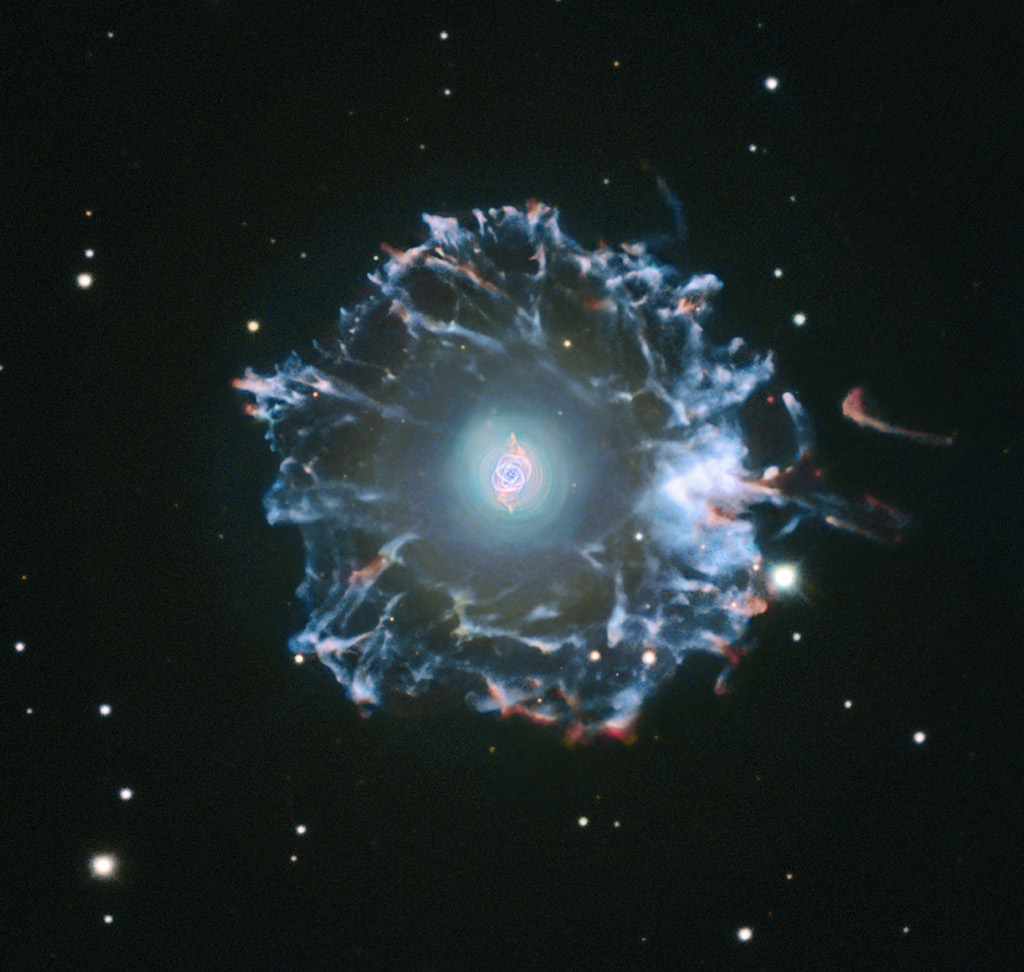
 Chicka Boom Chicka Boom
Chicka Boom Chicka Boom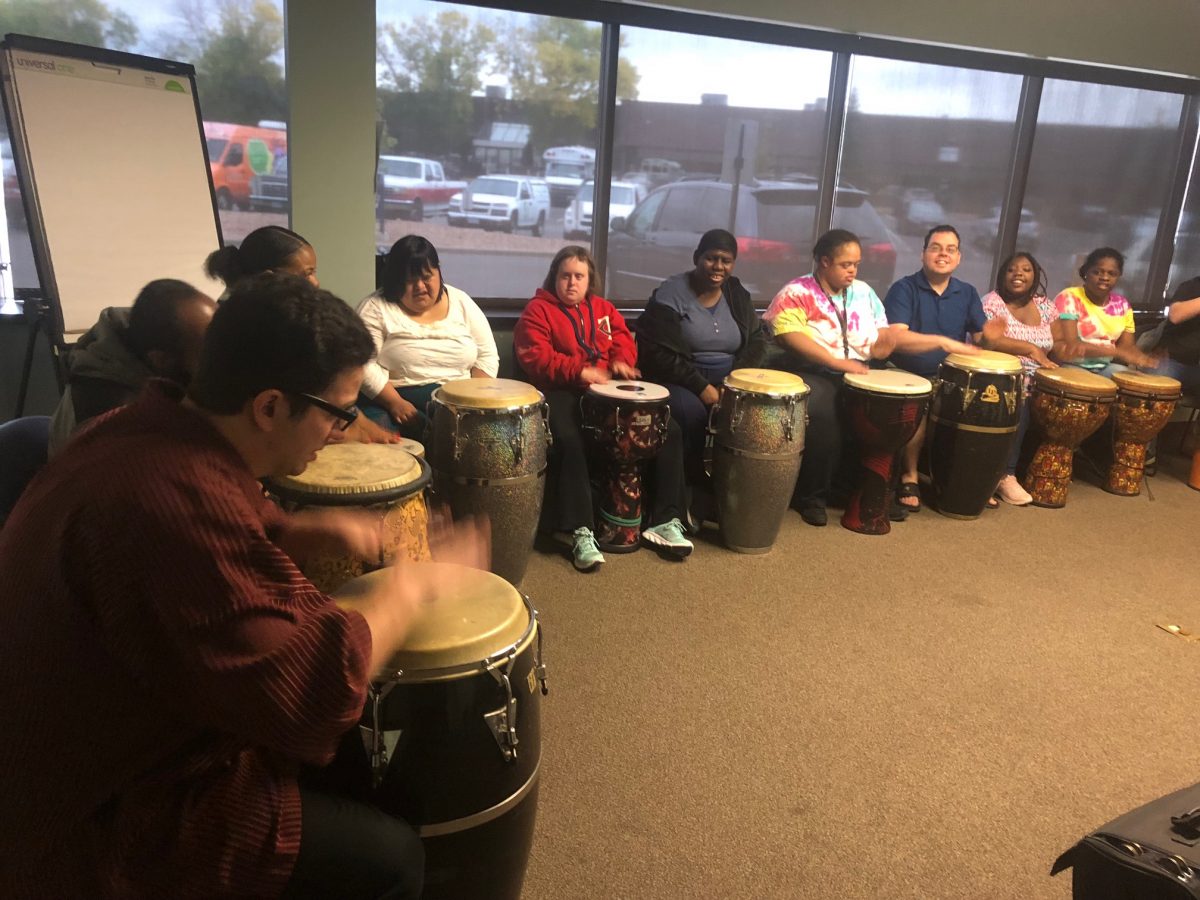 Just Do It
Just Do It